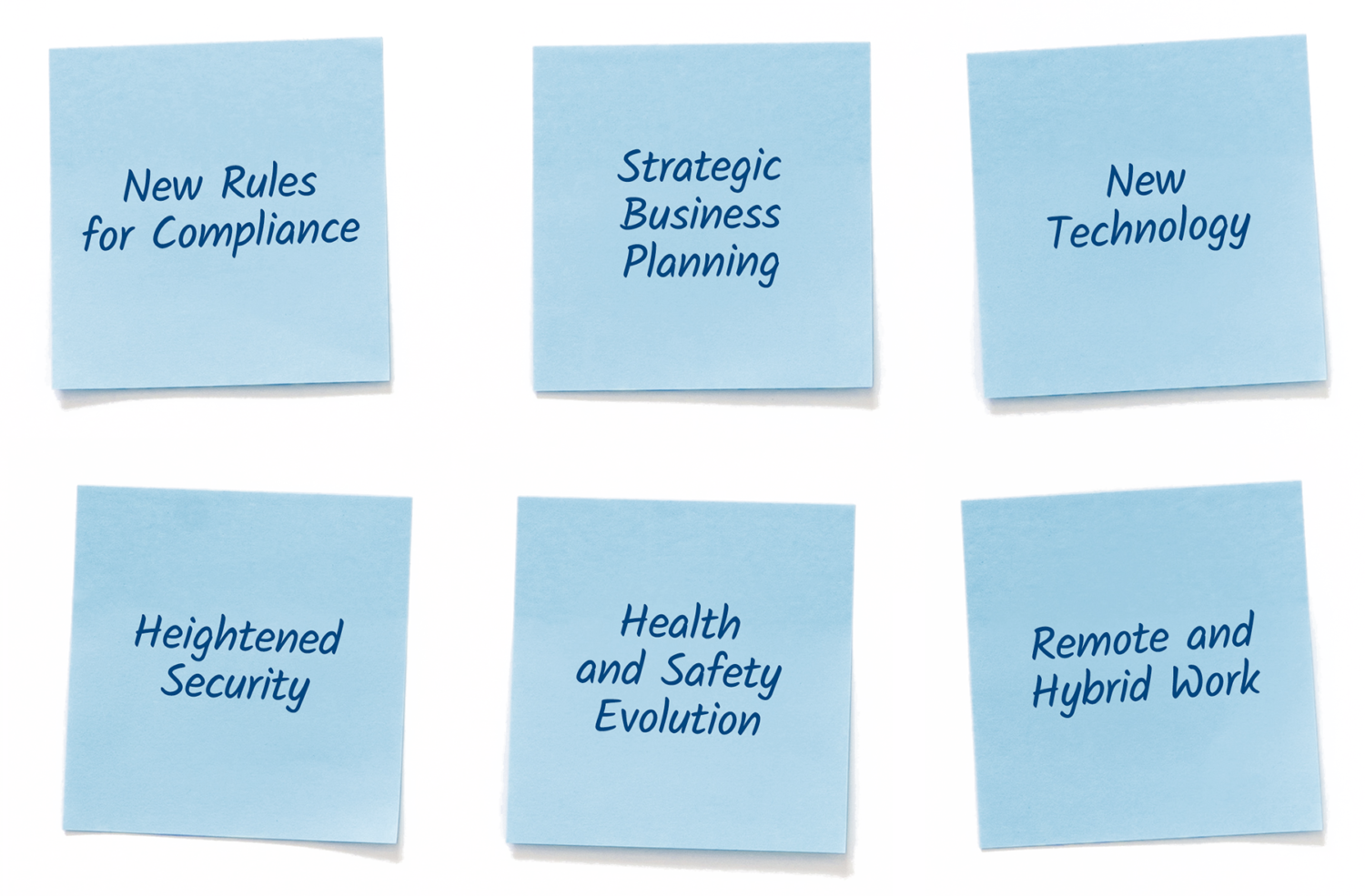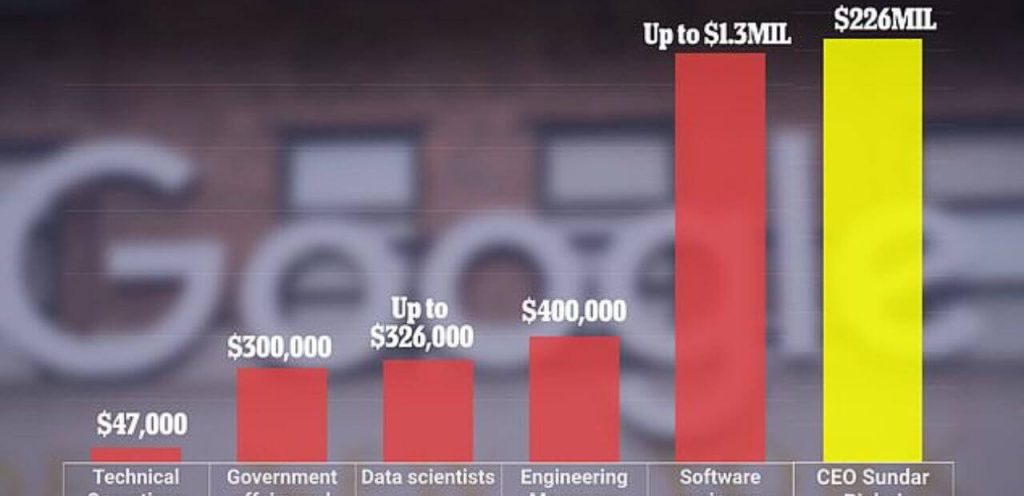The Diploma in Social Compliance in Bangladesh equips participants with expertise in ethical trade practices and labor standards. It offers comprehensive training on maintaining sustainable and socially compliant work environments.
Today, companies around the globe emphasize responsible business practices, making the Diploma in Social Compliance an essential credential for professionals in Bangladesh. Engaging with this program, individuals learn to navigate the complex landscape of global supply chains, ensuring their operations align with international human rights and labor laws.
This diploma is not only pivotal for advancement in the burgeoning apparel industry, a cornerstone of Bangladesh’s economy, but it also resonates across various sectors committed to corporate social responsibility. The course content typically covers topics such as workers’ rights, environmental issues, and the establishment of equitable workplace policies. Empowering professionals with this knowledge helps safeguard the reputation of Bangladeshi businesses and promotes fair trade, attracting international partners looking to invest in ethically sound operations.
The Rise Of Social Compliance
The importance of social compliance has surged globally. Businesses worldwide now recognize their role in ensuring ethical practices within their supply chains. With a spotlight on labor rights, safety, and environmental standards, social compliance has become a critical aspect for companies to maintain their reputations and satisfy consumer demand for socially responsible products. Global Demand for Ethical Practices
Global Demand For Ethical Practices
Consumers everywhere are calling for ethical production. They want to buy products made without exploiting workers or harming the environment. Companies respond by setting high social compliance standards. They ensure suppliers from all corners of the world, including Bangladesh, follow strict ethical guidelines.
- Respect for workers’ rights
- Safe working conditions
- Environmental protection
- Transparent supply chains
Bangladesh’s Textile Revolution
Bangladesh’s Textile Revolution
Bangladesh’s textile industry has undergone a transformative shift. Social compliance is at the forefront of this evolution. The sector prides itself on improving working conditions and meeting international standards.
| Year | Milestones in Social Compliance |
|---|---|
| 2013 | Formation of safety accords post-Rana Plaza tragedy |
| 2015 | Improved labor laws and rights awareness |
| 2018 | Green factories establishment and certification |
| 2023 | Continuous progress in ethical supply chain management |
This social compliance emphasis has earned Bangladeshi factories a better position in the global market. Brands now view them as reliable, ethical partners. The Diploma in Social Compliance equips professionals with the knowledge and tools. It ensures they maintain these standards and promote ongoing improvement.
Understanding Social Compliance
Defining Social Compliance
Social compliance means following social norms in business. It involves respect for people and the planet. Businesses must treat workers fairly and keep them safe. This process follows certain standards, laws, and ethical practices. Let’s break it down:- Labor Rights: Fair wages and proper working hours.
- Workplace Safety: Safe conditions to prevent accidents.
- Child Labor: No work for children below a certain age.
- Forced Labor: Workers must be free to choose work.
- Discrimination: Equal treatment for all employees.
Why It Matters In Business
Businesses thrive when social compliance is a priority. It brings benefits like trust and loyalty. Brands with strong social ethics attract more customers. They also keep employees happy. Here’s why it matters:| Reason | Benefits |
|---|---|
| Reputation | Builds a positive brand image. |
| Loyalty | Customers and employees stay longer. |
| Productivity | Happy workers mean better output. |
| Risk Management | Less legal issues and fines. |
| Investment | Attracts investors who value ethics. |
Bangladesh’s Stake In Social Compliance
The Garment Industry Landscape
As a production giant, Bangladesh’s garment sector fuels growth. Businesses worldwide watch this sector. They seek assurance of social responsibility. This landscape is unique. It blends tradition with modernity. It faces challenges such as workers’ rights and factory conditions. With proper guidance, it can shine.Impact On The Economy And Workforce
The ripple effect of social compliance in Bangladesh is vast. Ethical practices boost the economy. They enhance the country’s image. Positive changes attract global brands. This trust translates into economic prosperity. A cared-for workforce drives productivity. Job satisfaction climbs. Employment rates rise. Below, a brief overview:| Economic Indicator | Impact of Social Compliance |
|---|---|
| Investment Appeal | Up with ethical practices in place |
| Global Market Share | Grows as compliance meets global standards |
| Employment Rate | Rises with sustained global partnerships |
- Compliance ensures worker safety and fair pay.
- Global partnerships bring new jobs.
- Brand trust in the Bangladeshi market strengthens.

Credit: www.profmi.org
The Diploma In Social Compliance
Welcome to the world of responsible business with the Diploma in Social Compliance, a pivotal step for professionals in Bangladesh aiming to excel in ethical trade and sustainable practices. This specialized diploma caters to the growing need for experts who can navigate the complex landscape of social compliance in the garment and textile industry, which dominates the country’s export economy.
Course Overview
The Diploma in Social Compliance program introduces participants to the principles of ethical business conduct. It focuses on building knowledge about labor laws, workplace safety, environmental regulations, and social responsibility. The course aims to equip students with the skills needed to implement and manage compliance strategies within organizations.
- Key international labor standards
- Auditing and monitoring techniques
- Corporate social responsibility (CSR)
- Environmental compliance
- Supply chain management
Students undertake practical exercises and engage in real-world scenarios. This prepares them for the challenges faced by social compliance officers.
Institutes Offering The Program
Several prestigious institutes in Bangladesh offer this Diploma in Social Compliance, each providing valuable insights and knowledge.
| Institute | Location | Duration | Key Features |
|---|---|---|---|
| Bangladesh Institute of Management (BIM) | Dhaka | 6 months | Experienced faculty, industry-relevant curriculum |
| Centre for Policy Dialogue (CPD) | Dhaka | 4 months | Policy-focused training, interactive sessions |
| BGMEA University of Fashion & Technology (BUFT) | Dhaka | 1 year | Specialized for garment industry, comprehensive coverage |
These institutes often have partnerships with international organizations, enhancing their programs’ credibility and relevance.
Curriculum Breakdown
Core Subjects Covered
The curriculum is designed to impart a solid foundation in social compliance and ethical manufacturing. Key subjects include:- Labor Laws and Standards: Learn about the Bangladesh Labor Act and international labor standards.
- Health and Safety Regulations: Understand the crucial aspects of occupational health and safety.
- Environmental Management: Study how industries impact the environment and ways to mitigate this.
- Corporate Social Responsibility (CSR): Explore how businesses can positively affect society.
- Audit Processes and Reporting: Get trained on how to conduct social compliance audits and report findings accurately.
Hands-on Training Components
Practical training is key in applying theoretical knowledge. Students will gain hands-on experience through:- Workshops: Interactive sessions with industry experts to develop practical skills.
- Case Studies: Solve real-life compliance scenarios to understand workplace challenges.
- Internships: Gain on-the-job training within leading garment factories.
- Project Work: Engage in projects to solve actual compliance issues companies face.
- Simulation Exercises: Use simulations to practice audit processes in a controlled environment.
Skills You Will Gain
Critical Analysis And Problem-solving
The diploma enhances your ability to scrutinize various compliance issues critically. You will learn to:- Identify and evaluate social compliance challenges.
- Develop strategic solutions for complex compliance scenarios.
- Implement these solutions in real-world settings.
Understanding Of Legal Frameworks
The diploma provides an in-depth understanding of the laws and regulations that govern social compliance. Participants will gain knowledge in:| Area of Expertise | Key Skills |
|---|---|
| Local Legislation | Interpreting and applying Bangladeshi laws related to labor and industry. |
| International Standards | Navigating global standards like the UN Guiding Principles on Business and Human Rights. |
| Compliance Strategies | Crafting policies that align with ethical practices and legal requirements. |
Admission Requirements And Process
Eligibility Criteria
Before applying for the Diploma in Social Compliance, it’s important to meet the following criteria:- At least 12 years of schooling or equivalent.
- Proficiency in English and Bengali.
- Experience in the garment industry is preferred but not required.
Application Timeline
Timing is key when applying for the diploma program. Below is a breakdown of the application process:- Application Opening: Typically starts in January each year.
- Application Deadline: Closes by the end of February.
- Admission Tests: Conducted in March.
- Results and Enrollment: Finalized by mid-April.
Financial Investment And Scholarships
Tuition Fees
Knowing the cost of your diploma is the first step. In Bangladesh, tuition fees for a Diploma in Social Compliance vary. They depend on factors such as institution reputation and course duration.| Institution | Duration | Cost (BDT) |
|---|---|---|
| Bangladesh Institute of Compliance | 1 Year | 50,000 |
| Social Compliance Academy | 6 Months | 30,000 |
Funding Opportunities
Financial aid can lighten the load. Scholarships and funding are available to aid passionate learners. This help could come from the institutions themselves, NGOs, and industry partnerships.- Academic Scholarships: Merit-based, targeting top performers.
- Needs-Based Grants: Aimed at those with financial hardships.
- Corporate Sponsorships: Funded by businesses within the apparel sector.
Career Pathways Post-diploma
Job Roles And Sectors
Skilled professionals in social compliance are in demand. They ensure ethical standards in various industries.- Compliance Officer: Oversee company policies and laws are followed.
- Auditor: Inspect firms for social and ethical practices.
- Trainer: Educate staff on compliance standards.
- Consultant: Guide businesses in achieving compliance.
Entrepreneurial Opportunities In Compliance
Diplomas can lead to creating one’s business. The compliance industry offers vast opportunities.| Opportunity | Description |
|---|---|
| Consultancy Firm | Assist firms in managing compliance. |
| Training Center | Train individuals in social compliance. |
| Educational Content | Produce and sell compliance guides. |

Credit: www.facebook.com
Top Employers Seeking Social Compliance Diplomats
Local Vs. International Brands
Local brands in Bangladesh are strengthening their social compliance strategies to build trust among consumers. As these brands grow, the need for social compliance professionals grows too. Local brands often seek diplomats who understand the cultural nuances, legal frameworks, and market-specific challenges unique to Bangladesh. International brands with operations in Bangladesh prioritize social compliance to ensure their global standards are met. These brands look for diplomats who can navigate international protocols and communicate effectively with global stakeholders. Diplomats can expect opportunities with acclaimed brands in sectors like:- Garment Manufacturing
- Textile Industry
- Leather Goods
Ngo And Advocacy Group Sectors
NGOs and advocacy groups play a pivotal role in Bangladesh’s social compliance landscape. These organizations are often the bridge between the industry and the community. They seek professionals skilled in:- Human Rights Advocacy
- Environmental Conservation
| Position | Experience Level |
|---|---|
| Compliance Officer | Entry to Mid-Level |
| Project Coordinator | Mid to Senior-Level |
Success Stories
Alumni Achievements
Graduates of the Social Compliance program have gone on to achieve remarkable feats. Their success stories are not just numbers, but narratives of resilience, innovation, and dedication.- Fatima, a former student, now leads a team that ensures ethical practices at a renowned textile factory.
- Hasan used his diploma to help local businesses align with international social standards, boosting their exports significantly.
- Akhtar, once a diploma candidate, now speaks at global forums as an expert in labor rights.
Transformative Career Progressions
A diploma in Social Compliance can mark the start of a compelling career journey. Here’s how some alumni transformed their professional lives:- Rahim, a junior compliance officer pre-diploma, climbed to a senior managerial role within two years post-graduation.
- Mina transitioned from a local NGO worker to an international consultant for social compliance strategies.
- Anwar diversified his family’s garment business by integrating social compliance, doubling their clientele.
Networking And Professional Growth
Industry Events
Engage with thought leaders at diverse gatherings:- Social Compliance Forums to discuss industry best practices.
- Annual Conferences to learn from global experts.
- Workshops & Seminars to acquire hands-on experience.
- Trade Shows to stay ahead of market trends.
Building Professional Relationships
Creating a strong professional network is crucial:- Connect with Industry Peers to share insights.
- Meet Seasoned Experts for mentorship.
- Join Professional Groups for support and advice.
- Collaborate with Academics for research and development.
The Role Of Technology In Social Compliance
Software And Tools
Software applications are game-changers. They track supply chains. Real-time audits are possible. Here are key tools:- Compliance Tracking Software: Firms can monitor compliance across units.
- Data Management Systems: Stores information securely. Makes retrieving easy.
- Communication Platforms: Allow instant updates. Facilitate stakeholder engagement.
Future Trends And Innovations
Innovations shape the future of social compliance. Big data analysis predicts risks. AI-based tools might soon automate compliance monitoring. Blockchain could offer unmatched transparency.- Big Data Analytics: For risk prediction and pattern detection.
- Artificial Intelligence: Automates routine tasks. Enables predictive compliance.
- Blockchain: Provides a transparent record of transactions across the network.
Facing The Challenges
Criticism And Controversy
Criticism and controversy often shadow social compliance initiatives. The diploma course is no exception. Key concerns include:- Quality of curriculum
- Practical implementation gaps
- Industry buy-in
Overcoming Obstacles In The Field
Overcoming obstacles in the social compliance field is essential. Successful strategies include:- Engaging all stakeholders
- Continuous curriculum updates
- Real-world training applications
The Global Perspective
Comparative Analysis With Other Countries
Bangladesh stands amongst many nations striving for worker rights and corporate responsibility. The diploma serves as a benchmark, comparing local efforts with global trends.| Country | Social Compliance Focus | Educational Initiatives |
|---|---|---|
| Bangladesh | Labor Rights | Diploma in Social Compliance |
| Vietnam | Worker Safety | Health & Safety Courses |
| India | Child Labor Laws | Child Protection Programs |
International Standards And Practices
Bangladesh is aligning its diploma curriculum with global standards like the SA8000 and BSCI. Achieving such standards connects local industries to the international market.- SA8000: Focuses on social accountability in the workplace.
- BSCI: Encourages a common code of conduct for global supply chains.
- ISO 26000: Guides businesses on social responsibility.

Credit: www.sprintzeal.com
Continuous Education And Upgrading Skills
Advanced Degrees And Certifications
Earning a diploma is just a stepping stone in the social compliance arena. Pursuing advanced degrees can open new doors. You gain deeper insights into ethical issues and legal frameworks. Consider a master’s or even a Ph.D., as these can lead to higher positions and recognition. Professional certifications are another way to demonstrate your commitment and expertise.Life-long Learning In Compliance
The landscape of social compliance is ever-changing. A lifelong learning approach keeps you in sync with the latest industry standards. Seminars, workshops, and online courses are readily available. Plus, they can fit around your busy schedule.- Engage in webinars hosted by industry leaders.
- Join professional networks to exchange knowledge.
- Subscribe to industry publications for updates.
Starting Your Own Social Compliance Consultancy
Business Planning And Strategy
A well-thought-out business plan is your roadmap to success. Begin with a clear vision. Set concrete goals. Understand the market needs in Bangladesh. Identify your target clientele—garment factories, exporters, or international brands. Outline your services, from workplace audits to compliance training. Detail your financial strategy. Consider start-up costs, pricing, and revenue projections. Make sure to include a marketing plan. Keep it simple, focused, and adaptable. This plan will guide your consultancy from inception to thriving operation.Gaining A Competitive Edge
- Specialize in niche areas others neglect.
- Stay abreast of current regulations and industry trends.
- Offer unique solutions that add tangible value.
- Build strong networks with industry leaders and decision-makers.
- Invest in continuous learning and certifications.
- Use technology to streamline processes.
Final Thoughts
The Future Of Social Compliance In Bangladesh
Bangladesh strides toward sustainable growth, with social compliance as its cornerstone. Long famous for its booming garment sector, the nation now eyes a reputation for fair practices and workers’ rights. Leaders emerge, equipped with diplomas in social compliance, driving industry change. They ensure factories meet international standards, bolstering Bangladesh’s global standing.- Increased demand for ethical practices
- Adoption of international labor standards
- Enhanced worker satisfaction and productivity
- Growth in eco-friendly business strategies
Making A Difference Through Education
Education stands as a catalyst for evolution, shaping the minds that will craft a more just society. The diploma program is more than a set of courses; it’s a launchpad for change-makers.- Empowerment through knowledge
- Creation of a skilled workforce
- Guidance for business in social responsibility
- Support for a culture of transparency and accountability
Frequently Asked Questions On Diploma In Social Compliance In Bangladesh
What Is Social Compliance Training?
Social compliance training educates organizations and employees on ethical, legal, and social standards in business operations. It promotes adherence to labor laws, human rights, and environmental regulations.
What Is Social Compliance And Human Resource Management?
Social compliance in HR management ensures workplace practices meet legal and ethical standards, protecting employee rights. Human resource management focuses on recruiting, training, and supporting a workforce within these frameworks.
What Is A Diploma In Social Compliance?
A Diploma in Social Compliance equips individuals with knowledge and skills to ensure businesses adhere to ethical standards, human rights, and environmental guidelines within the workplace in Bangladesh.
How Long Does The Diploma Program Take?
Typically, the diploma program spans over 6 to 12 months, depending on the institution and whether the course is part-time or full-time.
What Career Opportunities Arise Post-diploma?
Graduates can pursue roles such as social compliance auditor, CSR manager, or work within supply chain management ensuring ethical practices in various industries.
Conclusion
Embarking on a diploma in social compliance is more than education; it’s a commitment to ethical business practices in Bangladesh. This program equips professionals with the requisite expertise to elevate industry standards and foster responsible corporate behavior. As we strive for a fairer work environment within Bangladesh’s burgeoning industries, such training becomes not just beneficial, but essential.
By investing in these skills, one paves the way for a more equitable market landscape.









